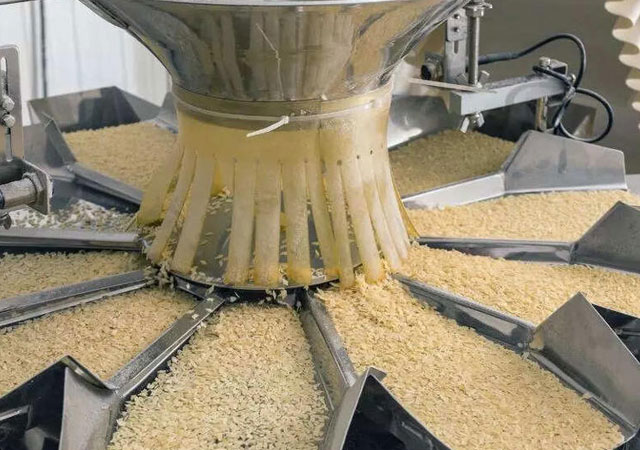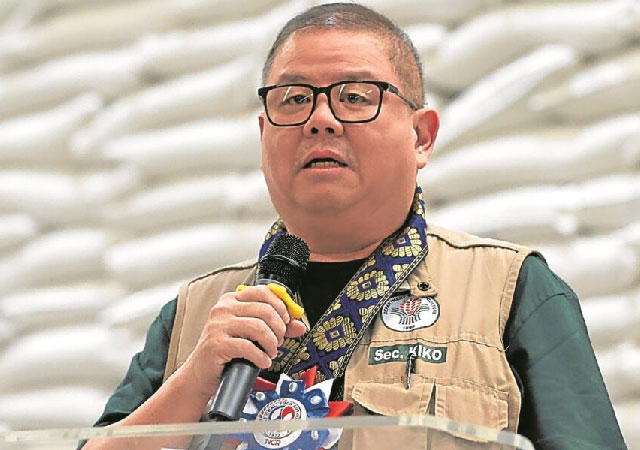 In the past three years, the government's loss incurred by disposing of excess rice for feed has exceeded 1 trillion won in total. Although the side effects of overproduction of rice are increasing, controversy is growing as Lee Jae-myung of the Democratic Party of Korea is pushing for a revision to the grain law to purchase leftover rice.
In the past three years, the government's loss incurred by disposing of excess rice for feed has exceeded 1 trillion won in total. Although the side effects of overproduction of rice are increasing, controversy is growing as Lee Jae-myung of the Democratic Party of Korea is pushing for a revision to the grain law to purchase leftover rice.
According to data submitted by Kim Sun-kyo, a member of the National Assembly's Agriculture, Food, Maritime Affairs and Fisheries Committee, from the Ministry of Agriculture, Food and Rural Affairs on the 20th, the loss from the sale of rice for feed from 2023 to this year amounted to 894.4 billion won. If the inventory management cost is added to 111.2 billion won, the total loss amounts to 1.56 trillion won.
The government generally supplies old grains (舊穀) that have passed the deadline for human consumption for feed. Three years after the purchase, the quality of rice deteriorates, making it difficult for people to consume it, and accordingly, it is sold at a low price as livestock feed. The problem is that the government does not buy the rice cheaply from farmers, but buys it at a reasonable price and sells it at a low price for feed at a management cost.
Last year, the government purchased rice from 2021 at 2,677 won per kilogram and sold it for 349 won for feed. The difference in unit price is 2,328 won, which means selling at the risk of loss. A total of 459,000 tons of rice have been disposed of for feed over the past three years, equivalent to the amount consumed by food and beverage manufacturers for six months.
Currently, the government's grain stocks are 26,000 tons below 2021, 269,000 tons in 2022, 428,000 tons in 2023 and 695,000 tons in 2024. If you don't rush out the grain produced before 2022 right away, the majority of them are likely to be converted to feed in the future.
Amid growing concerns over fiscal waste due to such excess rice disposal, candidate Lee Jae-myung visited Jeollanam-do on the 11th and pledged to re-promote the grain management law. The grain management law mandates the government to purchase more food than demand due to excess rice production. Last year, the government spent about 1.22 trillion won to purchase rice, including stockpiles, to control the supply and demand of rice.
The Ministry of Agriculture, Food and Rural Affairs estimated that if the grain management law is passed and overproduced rice continues to be purchased, it will cost 2.6925 trillion won by 2030.
Earlier, former President Yoon Suk Yeol exercised his right to request reconsideration (rejection) twice on the amendment to the grain law.
Experts point out the reality that domestic rice production continues to exceed consumption, and say that long-term industrial restructuring is inevitable. Kim Han-ho, a professor of agricultural economics at Seoul National University, said, "As the government spends excessive budget on purchases, investment in the infrastructure of the rice industry is rather insufficient. It is urgent to establish a flexible system to respond to climate change while adjusting the cultivation area to an appropriate level."
However, as rice prices have nearly doubled in a year due to the recent record heat wave in Japan, controversy over the reduction of rice cultivation area is hot. In terms of food security, there is a concern that a shortage of rice could lead to a situation similar to that of Japan.
In particular, the surge in rice prices in Japan is not just an imbalance in supply and demand, but also a decrease in quantity due to a sharp drop in the "white rate" of conversion from brown rice to white rice when milling rice due to the impact of the climate crisis.
Representative Kim Sun-kyo pointed out, "It is necessary to strengthen support for the conversion of other crops such as wheat and beans and to balance rice supply so that farmers' sweaty efforts are not in vain."














© Copyright 2025 The SSResource Media.
All rights reserved.